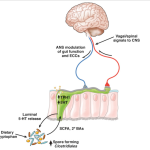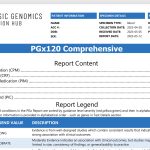If you’re trying to shed some pounds, finding a diet plan that helps you reach your objective can be tricky. Not all diets are created equal!
Some diets promise rapid weight loss, but don’t deliver in the long term. Instead, search for a plan that encourages healthy lifestyle changes and helps you maintain those habits over time.
1. Eat More Vegetables
Vegetables are an integral part of any weight loss plan as they offer plenty of nutrients without adding many calories. Plus, vegetables contain water and fiber which make them filling, so you won’t feel hungry as often.
Vegetables help keep the body hydrated and are packed with essential vitamins, minerals, and antioxidants. Eating vegetables may lower your risk for heart disease, cancer, and other serious illnesses as well.
If you’re having difficulty including enough vegetables in your meals, why not incorporate them into recipes you already enjoy, like soups or pasta dishes? You might be pleasantly surprised at how delicious they can be!
2. Cut Back on Calories
Calorie intake plays a significant role in how much weight you gain or lose each day, as the body requires certain amounts of fuel to remain healthy and active, according to the National Institutes of Health (NIH).
Cutting back on calories creates a calorie deficit, meaning you are eating less than your body burns each day. The National Institutes of Health recommends a calorie deficit between 500 to 1,000 per day for those looking to shed some pounds.
However, if you restrict your caloric intake too drastically, your metabolism may slow down – making weight loss harder as your body believes you’re in a famine state and begins storing fat instead of burning it off.
3. Eat More Protein
Protein is one of the three major “macronutrients,” alongside carbs and fat. Research has demonstrated that a diet high in protein can have significant benefits for weight loss, bone health, muscle growth, metabolism and more.
For optimal protein absorption, aim for a daily protein intake between 1.6 and 2.2 grams per kilogram of body weight (0.5-0.7 grams per pound). Those who engage in heavy exercise or are trying to build muscle should aim for slightly higher amounts than this.
4. Eat More Healthy Fats
Fat has often been given a bad rap, but recent research has revealed certain types of fat which may actually benefit your health. They may help reduce inflammation, boost satiety levels, and enhance nutrient absorption.
Fats come in two main categories: saturated and unsaturated. Saturated fats are commonly found in meat and dairy products, while unsaturated fats tend to be found more naturally in plant foods like nuts, seeds, and oils like olive oil.
Saturated fats may increase cholesterol levels, but the American Heart Association suggests limiting them to less than 10% of your calories. You can substitute these unhealthy fats with monounsaturated and polyunsaturated oils which have been scientifically proven to improve heart health.
5. Eat More Water
One of the most beneficial steps you can take when trying to shed pounds is drinking more water. Not only will this keep you hydrated, but it may also suppress your appetite and promote overall better health.
Furthermore, drinking plenty of water can increase your metabolism and make it easier to burn calories. This is particularly helpful if you are overweight or obese since it could result in a greater rate of fat loss.
Keep a bottle of water nearby and sip from it when you feel thirsty. Additionally, studies have demonstrated that drinking water before meals can increase satiety levels, helping you eat less food and ultimately lose more weight.











